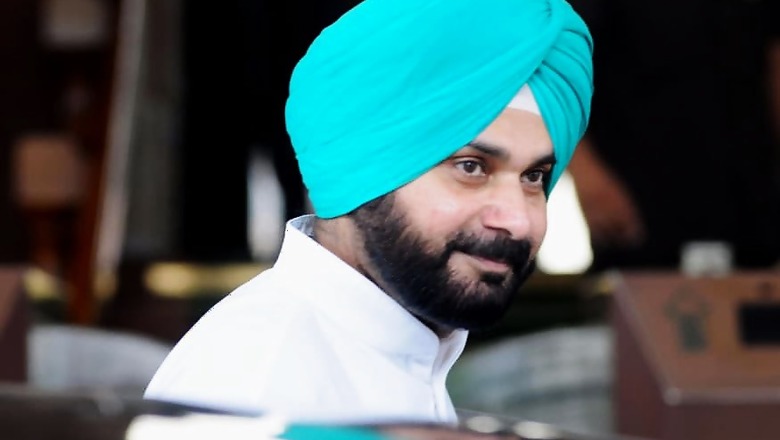
views
New Delhi: The Supreme Court has agreed to reconsider the quantum of punishment for cricketer-turned-politician Navjot Singh Sidhu, who was earlier let off with a fine of a meagre Rs 1,000 in the 1998 road rage case.
Admitting a review petition filed by the son of the deceased in the incident, the apex court has issued a notice to the Punjab minister on the point of punishment.
"Permission to file the Review Petition is granted. Delay condoned. Issue notice restricted to quantum of sentence qua respondent no. 1 – Navjot Singh Sidhu," stated a bench of Justice AM Khanwilkar and Justice Sanjay K Kaul.
The notice has come at a time when Sidhu has been criticised by the BJP and also left his party Congress in a piquant position over his attempts to exhort authorities for initiating talks with Pakistan. He has issued statements on returning from across the border after participating in Imran Khan’s swearing-in ceremony in Islamabad, hugging General Qamar Javed Bajwa, and comfortably sitting next to the so-called 'president' of Pakistan-occupied Kashmir.
The outcome of the reconsideration of punishment by the top court, however, will not impact Sidhu's second innings in politics after he left the BJP and joined Congress that helped him get a berth in the Amarinder Singh cabinet.
As a major reprieve for Sidhu, the Supreme Court has not agreed to review the entire judgment but only the aspect on the quantum of punishment. This also means that Sidhu's acquittal under the charge of culpable homicide not amounting to murder shall stick and that would not be altered by the court.
As far as the quantum of punishment is concerned, Sidhu currently stands convicted under Section 323 for causing hurt. The maximum punishment under Section 323 is a jail term of one year or a fine of Rs 1,000, or both. But as per the Representation of the People Act, it is only a jail term of two years or more that incurs disqualification of a sitting MP or a MLA.
Therefore, even if Sidhu gets the maximum jail term under the current charge, he would not be disqualified from holding his office.
According to the prosecution, one Gurnam Singh was beaten up by Sidhu in a road rage incident in December 1998. The victim was taken to a hospital where he was declared dead.
Sidhu was earlier acquitted by a trial court in September 1999. However, it was reversed by a high court in December 2006 and held Sidhu and co-accused RS Sandhu guilty of culpable homicide not amounting to murder. They challenged this in the Supreme Court which stayed the conviction pending the appeal in 2007.
In its judgment in May, authored by Justice J Chelameswar, the court acquitted Sidhu of culpable homicide not amounting to murder and convicted him only for voluntarily causing hurt.















Comments
0 comment